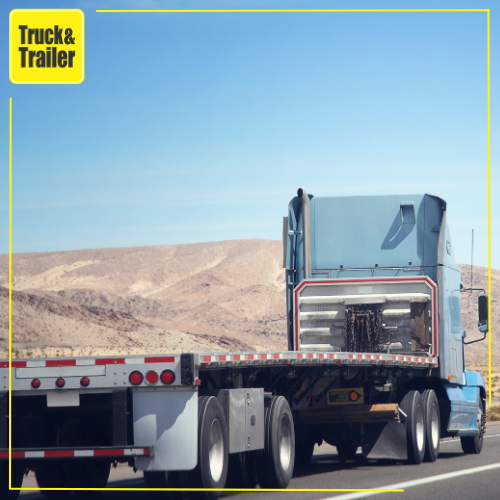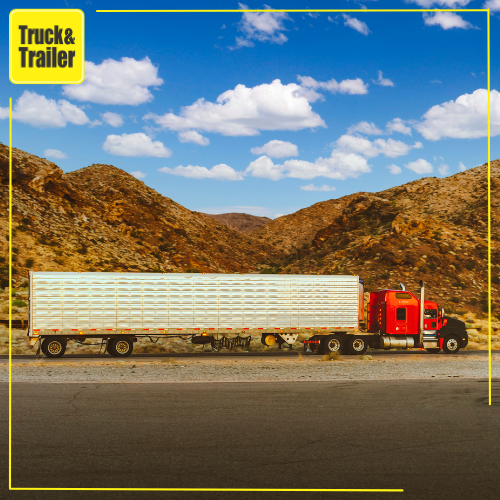Want to buy a tipper truck but not sure about its safety hazards and how to avoid them? Operating a tipper truck in South Africa comes with its unique set of challenges and risks. These heavy-duty vehicles are essential for transporting large loads, particularly in construction and mining industries. However, their operation can lead to safety issues if not managed correctly. Our article will explore the most common safety hazards on tipper trucks and provide practical tips to mitigate these risks, ensuring a safer working environment for everyone involved. Never miss a chance to get your much-needed items on Truck & Trailer. Create an alert to receive a notification once it’s listed on the website.

Understanding Tipper Truck Operations
Before delving into the specific hazards, it's important to understand what a tipper truck in South Africa does. These trucks are equipped with a hydraulic or mechanical lift that can tip the trailer or bed to unload various materials like sand, gravel, or construction debris. This capability, while efficient, adds extra risk factors that need careful consideration.
Common Safety Hazards on Tipper Trucks
1. Vehicle Overturns
One of the most serious hazards with these trucks is the risk of overturning. This can occur if the load is not evenly distributed or if the truck tips on uneven ground or during windy conditions.
Prevention Tips:
- Ensure even distribution of the load before any operation.
- Avoid operating on slopes, uneven terrain, or in extreme weather conditions.
- Train drivers on proper operational techniques specific to different terrains.
2. Load Ejection
Material falling from the truck during tipping operations can pose significant risks to bystanders and other workers.
Prevention Tips:
- Use covers to secure the load during transport.
- Ensure that no one is in the vicinity of the truck during unloading.
- Conduct regular maintenance checks on hydraulic systems to ensure everything operates smoothly.
3. Collision and Traffic Accidents
These types of trucks, due to their size and weight, are at a high risk of causing severe accidents if they collide with other vehicles or objects.
Prevention Tips:
- Implement strict adherence to traffic rules and speed limits.
- Regularly train drivers on defensive driving techniques.
- Ensure that all mirrors and cameras on the truck are functional to provide the driver with maximum visibility.
4. Mechanical Failures
Faulty brakes, worn-out tires, and hydraulic failures can lead to catastrophic accidents.
Prevention Tips:
- Adhere to a regular maintenance schedule.
- Replace any worn or damaged parts immediately.
- Ensure daily pre-trip inspections are conducted by trained personnel.
5. Health Issues
Prolonged exposure to the noise and vibrations from tipper trucks can cause long-term health problems for operators.
Prevention Tips:
- Provide operators with personal protective equipment such as earplugs and vibration-dampening gloves.
- Limit the number of hours operators spend in the truck each day.
- Regular health screenings for operators to catch any issues early.

Safeguarding Through Technology and Training
Investing in technology such as stability control systems, backup cameras, and automated tipping mechanisms can greatly reduce the risk of accidents. Additionally, regular training sessions for all employees involved in tipper truck operations can help minimise risks associated with human error.
Now that we understand the most common safety hazards on tipper trucks, let us see how we can avoid the danger.
How to Avoid These Hazards
1. Implementing Rigorous Training Programs
Education and training are the first lines of defense against accidents involving these trucks. Operators should be thoroughly trained not only on how to drive but also on loading techniques, vehicle maintenance, and emergency procedures.
2. Conducting Regular Vehicle Inspections
To prevent mechanical failures, regular inspections and maintenance of tipper trucks should be mandated. This includes checking brakes, tyres, hydraulic systems, and ensuring that all parts are in good working condition.
3. Adhering to Safe Loading Practices
It's vital to ensure that loads are balanced and secured before transportation. Operators should be trained in proper loading techniques and use of restraining devices to prevent shifting or loss of the load during operations.
4. Promoting Safety Culture
Creating a safety-oriented culture within the workplace can profoundly influence the adherence to safety protocols. Encouraging open communication about safety concerns and learning from near misses are essential steps in building a proactive safety culture.
While tipper trucks are incredibly useful in many industrial applications, their operation comes with considerable safety hazards. Recognising and addressing these risks is crucial for the safety of the operators and everyone around them. Implementing the prevention tips discussed above will help mitigate the most common safety hazards on tipper trucks, making their operation safer and more efficient. By prioritising safety, businesses can ensure that their operations not only comply with safety regulations but also protect their employees and assets. You never want to miss the opportunity to purchase your favourite item like tipper truck in South Africa on Truck & Trailer. Set up an alert to get notified when it's advertised on our website.





